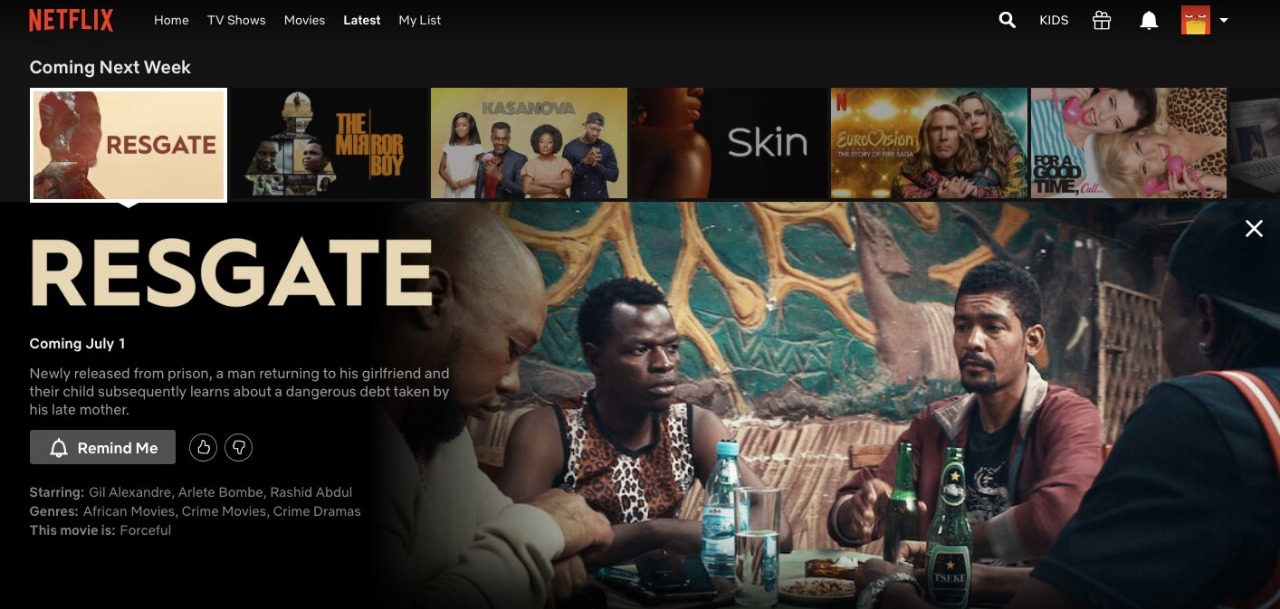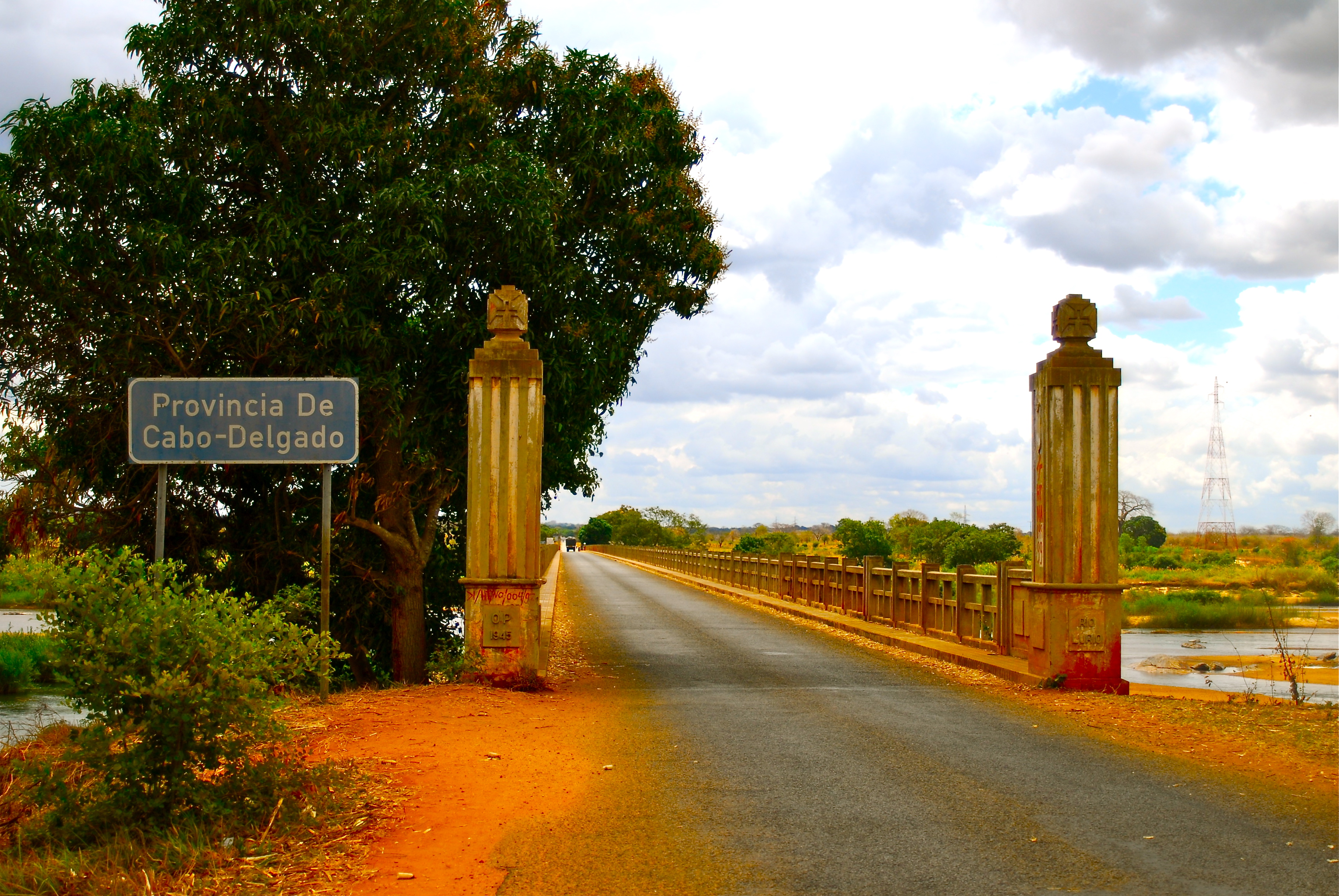The rise of artemisia in Cameroon in the fight against COVID-19
'Shouldn't Africa take a deeper look at natural medicines?'
THE STAR CALLED WORMWOOD
The Bible
Posted 8 June 2020

The artemisia plant has long been used as a medicinal herb to cure malaria and other ailments in Cameroon and throughout Africa. Screenshot from “The malaria business: Big pharma vs natural medicine,” a documentary by Franc24 via YouTube.
When Cameroon recorded its first COVID-19 case on March 6 in Yaounde, the capital, public health officials reassured citizens that the government would take swift measures to contain the spread of the virus, including compulsory face masks in public areas.
But the virus rapidly spread and also wreaked havoc on its economy.
By March 17, when Prime Minister Joseph Dione Ngute announced 13 guidelines to stem the spread, 10 people had tested positive. Since March, Cameroon has recorded 8,060 cases, with over to 200 dead and over 4,700 recovered cases since June 8.
Yet, on April 30, Ngute eased various COVID-19 measures, following an inter-ministerial committee meeting aimed at restoring the economy and local markets.
As the coronavirus cases continue to soar in Cameroon, many who believe in local herbs have turned to the artemisia plant as the government plans to reopen the country. Most Cameroonians believe in the efficacy of the artemisia plant to treat malaria and other illnesses.
Conglad Ngwa, a plant scientist and fungi researcher at the University of Buea, told Global Voices that the edible artemisia plant can treat headaches and stomach disorders, in addition to many other ailments.
On April 25, Archbishop of the Douala Metropolitan Diocese, Samuel Kleda announced over the national broadcaster CRTV that he has come up with an herbal treatment for COVID-19 that features the artemisia plant. Archbishop Kelda said:
Given that I already knew the plants according to the symptoms of the coronavirus, I have simply put together these combinations, prepared them and given to persons with the symptoms and they were relieved.
Kleda has about 30 years of research experience with medicinal plants, with a focus on herbal treatment for ailments affecting the respiratory system.
The government of Cameroon took some time to react to the clergy’s treatment of the coronavirus, raising questions among Cameroonians. Surprisingly, on May 19, President Paul Biya encouraged the use of homemade treatments to beat the dreaded coronavirus in a televised address to the nation.
The president’s call prompted Cameroonians to further rely on the local herbal combination to treat COVID-19 symptoms. The potency of artemisia — also known as wormwood or absinthe — has caused an upsurge in its cultivation in Cameroon.
The common recipe includes lime, lemon, pineapple, fever grass — and the artemisia plant, boiled and drunk as a tea.
When I flew to Cameroon few months ago, I was given this ‘Artemesia’ tea to drink, as a preventive shield against malaria.
Interesting to learn it may offer some level of immunity against CoronaVirus too, should be further studies on this plant's properties vs. Covid-19 👁️👁️ https://t.co/LYF5RY0qbY
— FLOЯIΛN 
 🏁 (@Florianaire) May 1, 2020
🏁 (@Florianaire) May 1, 2020
Atoh Mercy Acca, an accountant working in Doula, Cameroon, told Global Voices that her parents sent her pre-prepared traditional herbs for her to boil and drink after she complained that her boss’ family were exhibiting coronavirus symptoms:
As soon as I informed my parents about my boss whose child died of an alleged COVID-19, my parents did not hesitate to send my bottles of traditional herbs for me to boil and drink.
Bekondo Nestorine, a printing press clerk in Limbe, Cameroon, told Global Voices that he and his colleagues boil and drink the artemisia plant nearly three times a day in his office, including ginger to fortify their immune systems.
A return to growing artemisia plants
Asaba Lynda, an environmental enthusiast working with the southwest regional delegation of environmental nature protection and sustainable development, told Global Voices that “it is thanks to the coronavirus that lots of persons have turned back to growing plants — especially those they think help in the treatment of the virus.”
Set Ekwadi Songe, another regional delegate, expressed concern about a possible shortage of the artemisia plant due to its surge in popularity as an essential ingredient in herbal home remedies:
As people want to protect themselves from COVID-19, many herbalists, many traditional practitioners, are now going to nature to look at all types of species to produce cures, hence tampering with the existence of such species. Like the artemisia plant, it’s going to be difficult for us to get the plant because everybody wants it to treat COVID-19.
Delegate Songe added, however, that he is happy because the plant is there to help the population.
Respecting traditional medicine
The rise of artemisia as a respected plant is not a surprise in Cameroon, where traditional healers have used the plant for centuries to cure a host of ailments including malaria.
Now that the pharmaceutical world has recognized the efficacy of the plant in potential cures for contagious diseases, there's been an increase in artemisia plantations, both large and small. This may be perceived as an affront to big pharmaceutical companies who attempt to control its production, according to Irene Teis, in her blog for Malaria World. Last year, she wrote:
Artemisia plantations are spreading like a bushfire all over Cameroon, under the vigilant eye of universities and local organizations who avoid that the plant is improperly cultivated, handled and used.
Teis claims that the lives of traditional healers have been threatened and local artemisia plantations have been destroyed by police:
Several cases of murder or attempted murder have become known recently. It is also discouraging for them that their research and numerous clinical trials are ignored or depreciated by the medical neocolonialism, mostly by French experts.
The artemisia plant recently made headline news when Madasgar President Andry Rajoelina put forth the claim that COVID organics, a locally-produced herbal concoction featuring artemisia, could cure symptoms caused by the virus.
The World Health Organization quickly dismissed the efficacy of COVID organics, insisting there is no known cure for COVID-19, but the leaders of several African nations signed on to the product, including Tanzania and Comoros.
Netizen Kathleen Ndongmo made a plea on Twitter for further research on the power of traditional plants and herbs to cure contagious viruses.
Madagascar's recently released #COVID19 drug is largely artemesia based.
Now, shouldn't #Africa have a council of experts taking a deeper look at the natural medicines we've used for years?
How many of us “swear” by lemongrass, pineapple skin tea, hibiscus, paw-paw leaves?
— Kathleen Ndongmo (@KathleenNdongmo) April 30, 2020

Written by Boris-Karloff Batata
Download PDF
Bioactive Compounds and Health Benefits of Artemisia Species
Abstract
Traditional and Current Uses
One of the most known plants of the genus
Artemisia is
A. absinthium L., commonly known as “wormwood,” a yellow-flowering perennial plant distributed throughout various parts of Europe, the Middle East, North Africa, and Asia, and several chemotypes have been recognized.
13 The plant is used for its antiparasitic effects and to treat gastrointestinal problems, anorexia, and indigestion.
14 The aerial parts are present in many gastric herbal preparations, in dietary supplements, and in alcoholic beverages, for example, absinthe products, which enjoy a resurgence of popularity all over the world.
2,15 Moreover
A. absinthium and other plants of this genus were used to control pain in childbirth and to induce abortions.
5-17
In North African and Middle Eastern countries,
A. abyssinica Sch. Bip. ex A. Rich. is used in folk medicine as an anthelmintic, antispasmodic, antirheumatic, and antibacterial agent.
18 This plant grows abundantly in various parts of the Arabian peninsula and is locally known as “ather” (Saudi Arabia) and “boitheran” (Yemen).
2,19,20
AS DOC SPICE LOCAL ALCHYMIST I PRODUCED ABSINTHE IN THE 1980'S USING WORMWOOD AND PERNOD. IN FACT ABSINTHE WAS MADE BY PERNOD IN THE 19TH CENTURY, AND THE WORMWOOD WAS SIMPLY REMOVED FROM THE RECIPE ONCE ABSINTHE WAS BANNED IN EUROPE.







 🏁 (@Florianaire)
🏁 (@Florianaire) 








